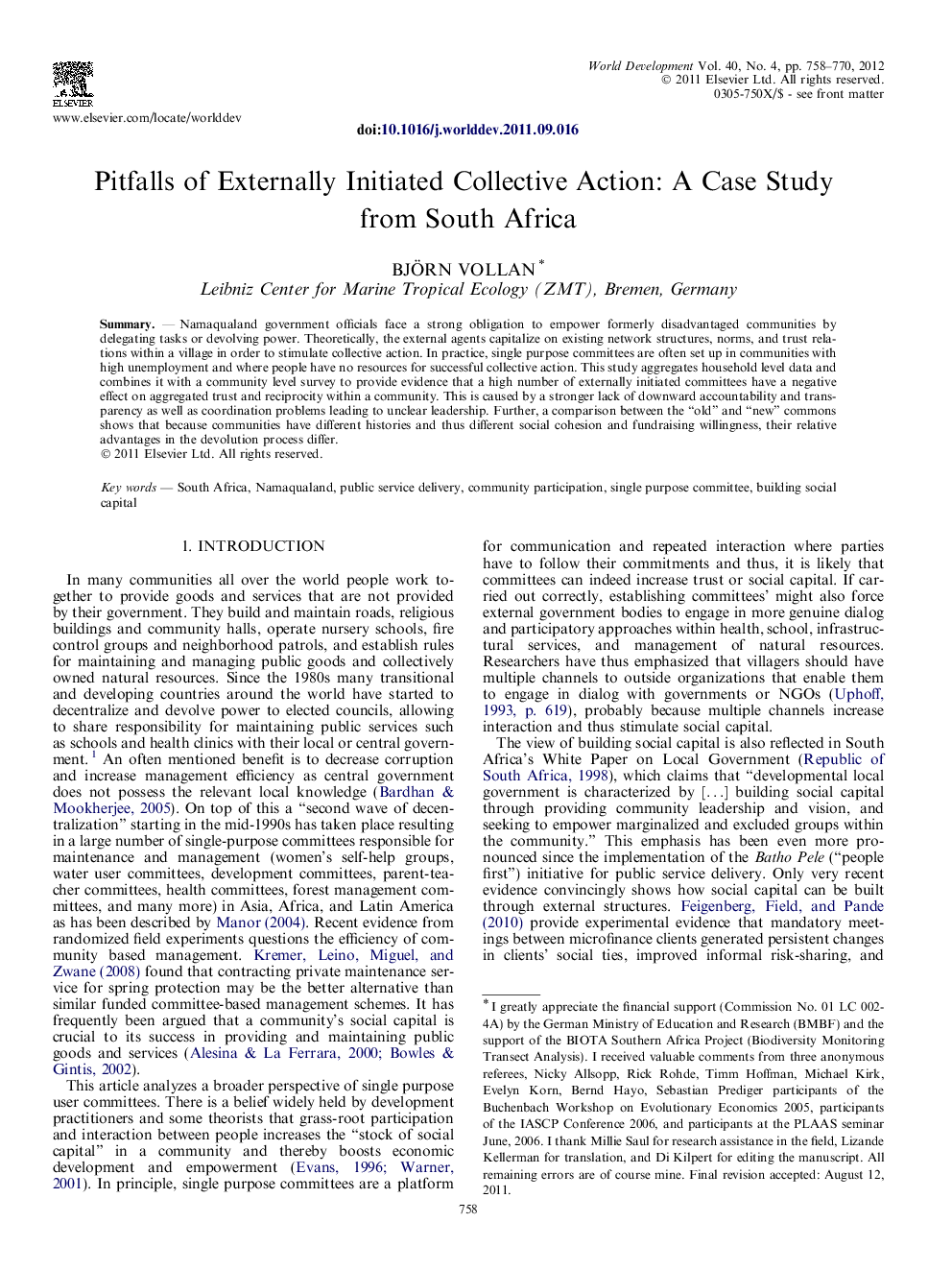| Article ID | Journal | Published Year | Pages | File Type |
|---|---|---|---|---|
| 989062 | World Development | 2012 | 13 Pages |
SummaryNamaqualand government officials face a strong obligation to empower formerly disadvantaged communities by delegating tasks or devolving power. Theoretically, the external agents capitalize on existing network structures, norms, and trust relations within a village in order to stimulate collective action. In practice, single purpose committees are often set up in communities with high unemployment and where people have no resources for successful collective action. This study aggregates household level data and combines it with a community level survey to provide evidence that a high number of externally initiated committees have a negative effect on aggregated trust and reciprocity within a community. This is caused by a stronger lack of downward accountability and transparency as well as coordination problems leading to unclear leadership. Further, a comparison between the “old” and “new” commons shows that because communities have different histories and thus different social cohesion and fundraising willingness, their relative advantages in the devolution process differ.
